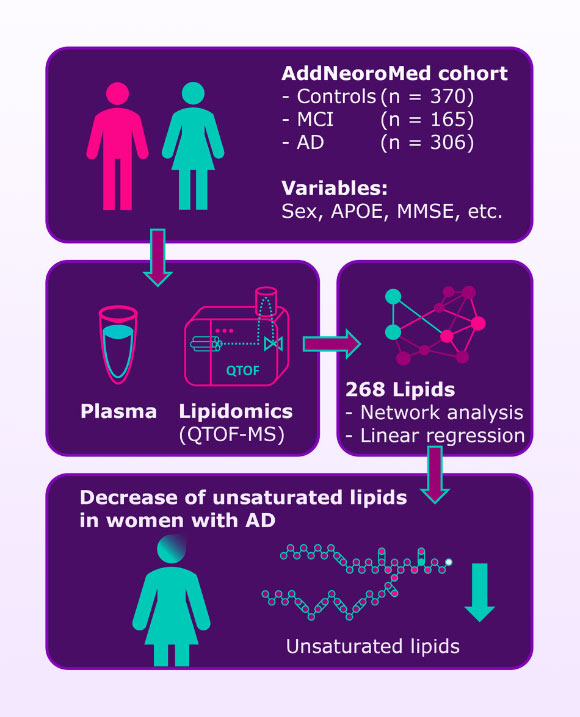Now Reading: Omega Fatty Acids May Shield Women from Alzheimer’s Risk
-
01
Omega Fatty Acids May Shield Women from Alzheimer’s Risk
Omega Fatty Acids May Shield Women from Alzheimer’s Risk

Speedy Summary
- Study Focus: New research highlights sex-specific differences in lipid associations with Alzheimer’s disease (AD), showing prominent impacts in women but not men.
- Gender Disparity: Women make up approximately two-thirds of AD cases and are more commonly diagnosed after age 80.
- Key Findings:
– In women with AD, there is a steep increase in saturated lipids (“unhealthy” lipids).
– Lipids with attached omega fatty acids (“healthy” lipids) are substantially decreased in women with AD compared to healthy controls.
– no similar lipid changes where observed in men.
- Methodology: researchers used mass spectrometry to analyze plasma samples from 841 participants, measuring brain inflammation and lipid composition across healthy, mildly cognitively impaired, and AD groups.
- Recommendation: Dr. Cristina Legido-quigley suggests women should ensure omega fatty acid intake from sources like fatty fish or supplements to maintain cognitive health while awaiting clinical trials for definitive guidance.
Indian Opinion Analysis
The study’s findings offer crucial insights into gender-specific biological pathways involved in Alzheimer’s disease. For India – a country steadily aging due to increased life expectancy – addressing Alzheimer’s among its growing elderly population will become crucial.Moreover, the gender disparity revealed may have implications for healthcare planning and dietary education specifically tailored for Indian women.
India’s diverse dietary habits could be leveraged here; promoting omega-rich food sources such as fish or plant-based alternatives like flaxseeds can align preventive strategies against neurodegenerative diseases like Alzheimer’s. Additionally, the study underscores the need for early diagnostics and interventions based on localized dietary patterns or genetic predispositions among Indian populations. As clinical trials develop globally based on this research direction, India’s participation could contribute unique demographic perspectives while advancing holistic care solutions for Alzheimer’s patients.






















